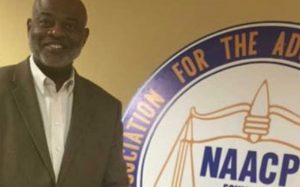
By Ed Gray, NDG Senior Columnist
Is the NAACP still relevant? That’s the question asked of me after I attended a recent NAACP meeting. The question was posed not by an interested bystander, but a fellow NAACP member. If you have to ask that question then there are issues of relevancy.
I have been a long-time member of the NAACP, I have been active for over thirty years. These questions have plagued the NAACP since I was a young man. I have been traditionally supportive of the NAACP in a historical context, of what they have done in the past.
In its glorious past here in Dallas, the NAACP has led the fight to desegregate the Dallas Independent School District and the fight for equal pay for Dallas school teachers. Though these battles were won in the courtroom, the drama played out in the court of public opinion. The strength of the NAACP collective victories in the past was won by organization and lawsuits. This along with activism made the Dallas NAACP respected as a protector of social and civil rights.
Today’s Dallas NAACP is a much-heralded new brand of NAACP leadership has internal as well as external challenges to overcome. The internal question regarding leadership is to how to coordinate an effective response in this age of social media which is geared toward a fast-paced activist social movement There must be increased visibility through a visible and effective online presence.
The NAACP’s response to a growing litany of social problems has been to participate in other organizational marches. Whether it is responding to police brutality in the Dallas-Fort Worth area such as the Jacqui Craig arrest, or the Jordan Edwards murder in Balch Springs, the NAACP has acted as if it was a junior partner in the junior league of social justice. I applaud cosigning to other social justice movements however, leadership is leading the fight, not being in a fight.
The Dallas NAACP has not lead a march, proposed any legislative changes, redressed any legal concerns, nor promoted any agenda that has moved social justice forward. The Dallas NAACP has behaved more in a corporate manner than a traditional civil rights organization. The NAACP has devoted more time planning for banquets and attending conventions than being a power in the streets or being a power in the suites. I stand ready to assist in any meaningful manner to move the NAACP mission forward.
Social justice is more than the laudatory commendations awarded to companies that buy the most tables at Freedom Fund Banquets. It means devoting more time to further the concerns of the NAACP. It means organizing for social justice, political organization, environmental rights, economic rights, and judicial reform.
Dallas is one of the leading centers of mass incarceration in the nation. It has traditionally had more DNA exonerees than any other city in the United States. In our black communities of the metroplex, more children go to bed hungry than anywhere else, which leads to a poor learning environment. Therefore, our public schools operate as centers for food, rather than centers of education.
Is the NAACP still relevant? Yes, it is. It is only as relevant as the leadership and those that are its members. We must all work together to keep the NAACP relevant.
We don’t have to answer with our lives, we only have to answer with our time. I encourage all to increase the relevancy of the NAACP by joining if you are not a member. I encourage you to be an active committee member. We all can answer the question of NAACP relevancy by moving leadership forward to keep us all viable. We have come too far, and sacrificed too much, to not remain relevant.
I am Ed Gray and this is straight talk.
Ed Gray, the host of The Commish Radio Show airing Saturdays 3 p.m. – 5 p.m. on FBRN.net, can be reached at eegray62@att.net.





I have traditionally stood back from the NAACP due to its’ reputation for its’ top down style of organization. Those who define the direction of the organization (in terms of balls and dinners and dances and fund raisers and activities in the courts) too often have the final say so. So many local chapters have had problems with the national directors who want to play by the rule book that comes down from the “powers that be”. The big and quick changes in the way things are have not come through the courts or balls or fund raisers and etc. The big and quick changes have happened when folks took to the streets and followed through to put some hurt on the power structure. Whereas courts make laws that many times are not even enforced.
However, the contributios of the NAACP cannot be overlooked and are worthwhile in many cases.